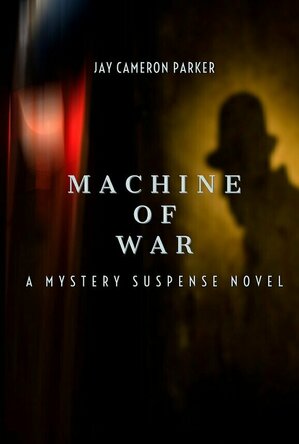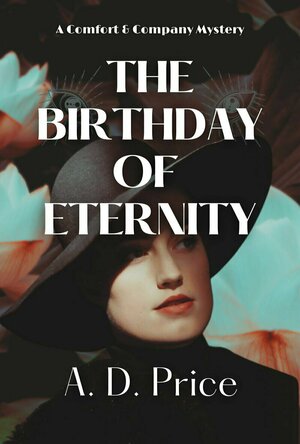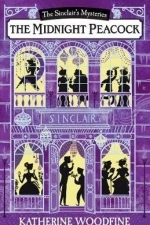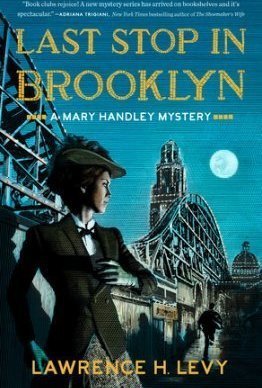
The Game's Afoot (Band of Brothers #1)
Book
1415 England stands on the brink of war with France. Henry V receives intelligence, through...

The Second Sight of a Zachary Cloudesley
Book
Zachary Cloudesley is gifted in a remarkable way. But not all gifts are a blessing... Leadenhall...

His Lordship's Gift (His Lordship’s Mysteries #2.5)
Book
Dominick has everything he needs in life—a roof over his head, food in his belly, and the man he...
MM Historical Mystery Romance Short Story

Machine of War
Book
1947. Thomas Armstrong, a young Marine, returns home from the war in the Pacific. He hopes to forget...
mystery suspense thriller historical bookbuzz

The Birthday of Eternity (Comfort & Company, #2)
Book
L.A. private investigators Kit and Henry become entangled in the city's robust post-WWII occult...
Historical Mystery Private Dectectve Series

Novice Threads (Silver Sampler #1)
Book
A thirst for education. Shattered dreams. Fragile relations. 1840s Scotland Being sent to...
Historical Fiction Women's Fiction Victorian Saga

You Will Know Me by My Deeds
Book
Billy Tarwater thought he had left the troubled past behind, until a series of ominous incidents...
Historical Crime Sequel
TravelersWife4Life (31 KP) rated Set the Stars Alight in Books
Feb 23, 2021
This is my first book by Amanda Dykes and just wow... It has taken me a few days to really process this book and get my thoughts together on it.
I honestly have no idea where to start with this review. I have never read a book quite like this one. It is full of lyrical words and phrases that set your mind alight with thoughts and pondering's about the deeper thoughts of the world. Then interwoven are two stories about finding the way home from out of the dark. It does not read like your typical dual timeline story. It is two stories so deeply and flawlessly put together that it almost seems like a story inside of a story, rather than two separate stories intermingling. I loved the mystery of it, fitting clues together in my mind and thinking about the meaning behind the words the characters were saying. I really enjoyed this thought-provoking story.
“Nothing is impossible. Just think. Pay attention. Stretch forward. When things seem dark, Lucy, that is when you fight for the light. I think it is the duty to keep the stories, to pass them on. It is our duty- and our honor. In a world as dark as ours, people forget how to see the light. So we remind them by telling the truth, fighting the dark, paying attention...setting the stars alight.”
The characters showed almost a banked set of emotions, letting you see little bits of themselves over time as you got to know them better. I loved their selfless actions, their growth, and their deep pondering's that led to an undercurrent of deeper meaning throughout the whole story.
Truly a very well-done book of characters with lots of layers, emotions, and mystery. I give it 5 out of 5 stars for the amazingly well-done dual timeline, the historical facts, and mystery, and for making me think deeply about what was happening inside these pages.
*I volunteered to read this story in return for my honest feedback. The thoughts and opinions expressed within are my own.

The Midnight Peacock: The Sinclair's Mysteries
Book
A fast-paced historical mystery adventure for readers aged 9+ years, with gorgeous Edwardian period...
young adult crime
Lindsay (1796 KP) rated Last Stop in Brooklyn in Books
Mar 20, 2018
On her way out, she confronts a man see that is following her. When she does, he wants her to look into his brother case that is that Ben Ali is not a killer.
There seems to be some corruption going on in the NYPD in the year of 1894. Who does all the cover-up? Who the Killer of more than a dozen woman.
Looks like Mary get pulled into an investigation that has to do with Sage Bombing and as she gets more into the case of Ben Ali she finds more clues and finding the killer. Who is Jack the Ripper, the killer?
You will be turning the page to find out. Have you read the book you learn about that time period in NY? We even meet Teddy Roosevelt before he becomes President of United States and the reason why or at least partly.
If you are a historical Fiction fan you will enjoy this book. It a Mystery and part historical so you will get both if you are a fan of both or one or the other.

